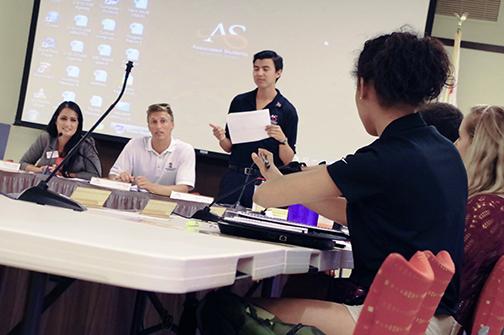Last Wednesday the Associated Student’s Campus Life Council had its first reading of a resolution that, if passed, would reaffirm student support for San Diego State University’s policy on academic freedom. The proposed resolution comes following the backlash to an Arabic studies professor’s use of a map of Arabic speaking countries in the Middle East that did not include Israel.
The first draft of resolution UCB F13-01 mainly focuses on reaffirming the university’s standing policy on academic freedom which protects the opinions of students and faculty. The draft of the resolution, which can be found on the A.S. website, also suggests that A.S. actively inform students about SDSU’s academic freedom policy to help prevent future issues.
More specifically the resolution recommends placing SDSU’s academic freedom policy within syllabuses along with information on the various outlets students can use to address issues they have with course content within the university.
“The focus isn’t as much on preventing students from criticizing their professors, but on letting them know they don’t have to go to outside groups to do so,” A.S. Vice President of External Relations Javier Gomez said.
The CLC was one of the last councils to make suggestions to the first draft, which had already been considered by the University Council a week earlier. Like their colleagues on the other boards they mainly focused on narrowing down how A.S. would actually implement the resolution.
A resolution passed by the U.C. represents the official stance of A.S. on a specific issue or policy, says A.S. Vice President Rebecca Cohen.
“Resolutions don’t just represent A.S.’s stance, they are meant to represent the stance of the entire student body we were elected to represent,” Cohen said.
Though the CLC cannot actually pass resolutions, they, like many of the smaller councils within A.S., can make suggestions on the draft of the resolution. The suggestions are then passed on to the University Council which can vote to formally pass resolutions. Generally a resolution goes through two cycles of readings by the various councils before the U.C. takes a final vote on it, though sometimes there are more cycles, says Morgan Chan, the A.S. vice president of university affairs
The second round of readings will begin this upcoming Wednesday with the U.C. meeting and will continue in the following week’s CLC meeting.
Photo by Jordan Owen







